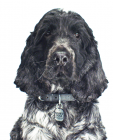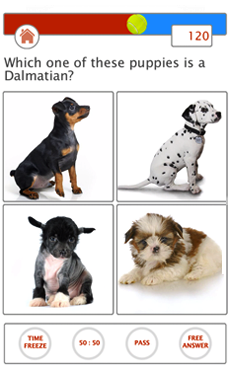Cocker spaniel
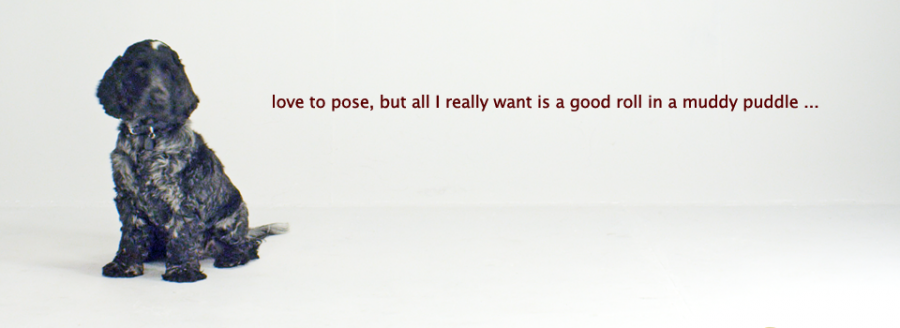
In my own words
Awfully nice to meet you, please don’t think I always look so smart. I like nothing better than a jolly good roll in the mud, or a nice swim in a smelly river. I love a good old sniff in the hedgerows too, it’s amazing the amount of wildlife you can flush out. I started two rabbits last week which got away, and a toad, but it didn’t taste nice, so I dropped it. I love helping my human in the garden – chasing the yard broom is my favourite game. I’ve always been active you know, though I do love a good cuddle in front of the fire at the end of the day - I often bring one of my toys as a love token. Unfortunately, you lot seem to have a thing about grooming – such a waste of time ‘cos dogs like me are only going to get muddy and tangled again next time we go walkies. Ho hum, that’s love for you I suppose!
My ideal owner(s)
Families
Country people
City folk
Active older people
Singles
What they say about me
Beautiful
Cheerful
Faithful and loving
Helpful
Busy
Please read on, to find out more about me, and whether I will be someone you can be happy with for the next 15 years!
Is this Cocker Spaniel for you?
Test your knowledge about the Cocker Spaniel
Information essential about the Cocker spaniel
Kennel Club Group:
Gundog
Size: Medium: Male Height 15 – 16” (39 – 41 cms) Female 15 – 115 ½ ” (38 – 39 cms)
Weight 28 – 32 lb (13 – 14 ½ kg)
Popularity:
The Cocker Spaniel has remained the 2nd favourite dog in the UK for many years.
Other Cocker Spaniel types:
Field or Working Cocker, Show Cocker , American Cocker.
Breed History:
Cocker Spaniels are been around for many hundreds of years, though until the mid 19th Century, Cocker and Springer Spaniels were considered to be the same, and indeed, both types often emerged from the same litter. Both types were originally used for flushing and retrieving game from land and water, until eventually a smaller Spaniel was developed which specialised in flushing Woodcock from English Woodland, hence the name “Cocker”. First registered with the Kennel Club in 1892, nowadays, there are two main types of so called English (the term is used simply to differentiate this type from the American Cocker, which looks slightly different) Cocker Spaniel, the Field or Working Cocker, and the heavier, larger Show Cocker.
Character:
Intelligent and alert, your Cocker is always busy, with a merry attitude to life and a constantly wagging tail. Easy to train, your Cocker is eager to please you, and likes nothing better than to be out and about with you, though he can be stubborn and “go his own way” on a walk. The whole of a Cockers being is about using that wonderful scenting ability to flush out small game from wherever he happens to be – in the garden or out among the hedgerows. If he isn’t hunting, and you’re at home, his retrieving instinct will show up in the gifts he brings you, a favourite toy, or one of your slippers. The more you work or play with your Cocker, the happier and more content he will be, because that active brain is easily bored, and without enough to do, he can become morose or sour. Good with children and other pets (though he may go for cats which are not “his”), your Cocker makes a delightful, entertaining family pet.
Temperament:
Your Cocker is a gentle person, and very affectionate, often coming up to lay his chin on your knee to gaze adoringly into your eyes (could that sometimes be a tiny bit of cupboard love?) Your Cocker can be a fussy eater, but that won’t stop him twirling in circles and barking if he thinks there’s a treat in your hand. Cockers tend to make a special bond with just one individual in the family, although he will be sweet with everyone, including guests, and especially playful and protective with children. Your Cocker is obedient to commands and can learn lots of different ones, thoroughly enjoying the learning process. He can be excitable though, and won’t like being left along for more than a couple of hours. Your intelligent Cocker can appear to read your mind, and when you’re thinking about just flopping out on the sofa, he will often be there before you.
Conformation:
Your Cocker should look sturdy and sporting, well balanced and about as tall as he is long. The head should be finely chiselled, with a square muzzle and a distinct stop. The nostrils should be wide enough for good scenting. The eyes should be oval and full, though not prominent and ideally should be mid or dark brown, unless the coat is liver or liver and white, when hazel eyes harmonise with the colouring. The expression should be gentle but wide awake, bright and merry. The neck should be of moderate length leading to sloping shoulders, and sturdy legs short enough for concentrated bursts of power, but not too short to interfere with speed. The body should be strong and compact with a well developed chest, deep brisket and well sprung ribs. The loins should be short, wide and firm, the hindquarters well rounded with legs that are short below the hock to allow for plenty of acceleration. The undocked tail should be of medium length (ideally no longer than the point of hock), well feathered and tapering. The feet should be firm, thickly padded and cat like.
If your Cocker is from a working line, he will be lighter and slightly smaller than his Show Cocker cousin.
Colour:
Here you are spoiled for choice. Solid colours include black, golden, red, liver, black and tan, liver and tan, all with no white. Parti-colours can be black and white, orange and white, liver and white, lemon and white, all with or without ticking. Tricolours can be black, tan and white, or liver, white and tan. Then there are the roans: blue roan, orange roan, lemon roan, liver roan, blue roan and tan and finally liver roan and tan.
Training:
Your Cocker is highly intelligent, and is usually very obedient and kind. However, if he finds a good scent line, it could be a while before he decides to come back to you. On the whole though, the more you can teach him, the more he will enjoy it. Your Cocker is known to bark, especially as a warning, but training can help him discern when it’s ok to bark and when it isn’t.
Care:
Like it or not, your Cocker will need grooming every day because that fine feathered coat is a magnet for burrs, twigs and thorns. You will also need to pay special attention to his ears and keep them tidy and clean, as they are prone to infection. Make sure you dry them thoroughly after swimming or bathing. A couple of visits year to the grooming parlour for stripping, which will include removing the excess hair from the insides of the ears, is recommended to keep your Cocker comfortable and smelling gorgeous.
Health:
There is no reason why your healthy Cocker shouldn’t live well beyond 12. Many make it to 14 or 15, but it is important not to let him put on weight or you will find signs of aging can start from as young as eight or nine. Inflammation of the ear (Otitis Externa) is common as with all long eared breeds. Some suffer from degenerative eye diseases which tend to be hereditary. Cockers are naturally robust however, and will more than likely remain your merry little funster all his long life.
You may also like:
Cocker spaniels looking for a home in UK »
(Interest Shown)"> (Interest Shown)" class="overviewimg"/>
(Interest Shown)" class="overviewimg"/>

Cocker spaniels and their owners »



If you like Cocker spaniels, you may be interested in breeds of the same size »
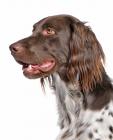
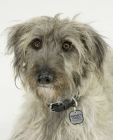



If you like Cocker spaniels, you may like other breeds with similar characteristics »
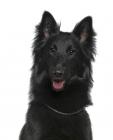
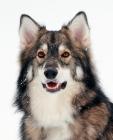


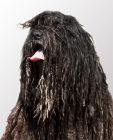
If you like Cocker spaniels, you may be interested in these other gundog dogs »
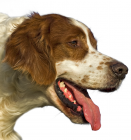
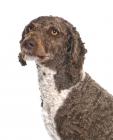



Advice on choosing your breed »
Find an animal shelter or rescue home where a Cocker spaniel is waiting for a new home »
The following grid gives a fast track review which covers all breeds. You can apply it to help you decide if a Cocker is suitable for you, the environment where you live, your personality and your lifestyle. On the grid, 1= strongly disagree, and 5= strongly agree. For example, if you are looking for a dog that makes a good walking companion, look down the list under Activities, and you will see that Cockers make great walking companions, scoring 5. If you want a dog that is good with children, look under Role & Suitability, and you will see that Cockers are good with older children, and score 5. You might like to save or print off this section and keep it for reference while you check some other breeds before making your final choice.
Be the first to rate this breed »
|
*PLEASE NOTE: All our breed profiles are general, and all dogs are individuals. Always talk to the breeders and meet the owners you are buying from. Try to meet the dog and its parents if it is a puppy in their home environment.








